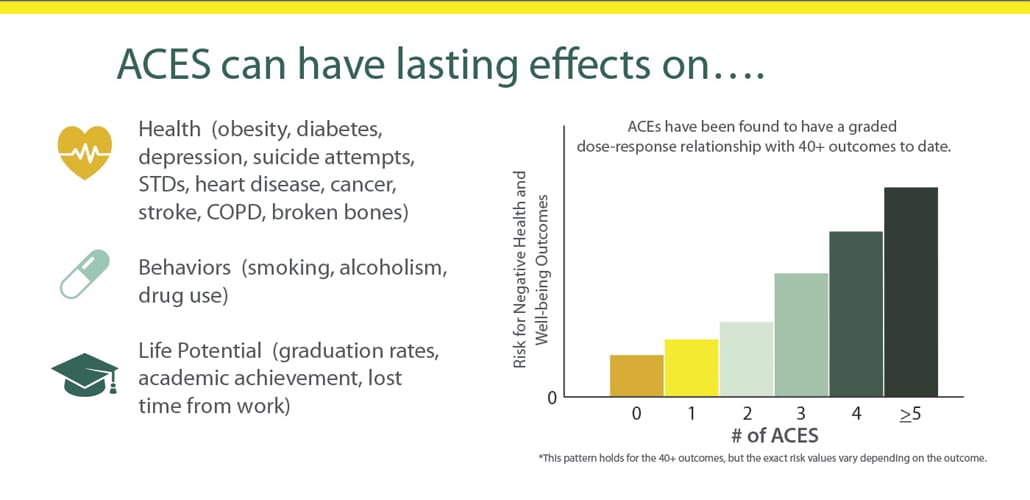I just finished part 3 of "All in the Family," a CBC Radio exploration of a massive study called "Adverse Childhood Experiences," or ACE, which shows that
Trauma changes the mind, the nervous system and the body. It even changes how people think.
As a high school teacher, I've worked with traumatised youth and invariably, these are the students who struggle socially and academically and do not complete high school. We've seen a rise in mental health concerns and other than mental health awareness days, I haven't seen structural changes in the way we do school or approach these particular students that addresses these concerns. We give them lots of "chances," modify expectations, all in attempts to get them to "pass." Pass on to what? I recognize it's exceedingly complex, each student unique. And yet. I need to learn more.
Not attending school, not completing courses and not graduating correlate with experiences of trauma for some students. While schools have no control over student experiences outside of school, we cannot approach students in schools as if their life experiences have no bearing on their school experiences. For me, the first question isn't how can I get this student to graduate, it's how can I build a relationship with this person and see them get unstuck and find a path to healing. This is a social issue in which schools play a significant role. Graduating will not eliminate the effects of trauma, which can last for a lifetime. What is our responsibility as educators, as schools? At the moment, this study raises many questions, which has me in search of answers.
One place I will start is Bessel van der Kolk's book, The Body Keeps Score: Brain, Mind and Body in the Healing of Trauma. He says,
Kold identifies ways to regenerate the mind and body and I'm eager to dig deeper into this topic.
I welcome any ideas or resources that would be helpful.
(Here's the CBC podcast part 1, 2, 3)
childhood experiences, both positive and negative, have a tremendous impact on future violence victimization and perpetration, and lifelong health and opportunity. *As the number of ACEs increases so does the risk for negative outcomes, even decades later.
 |
| http://www.cdc.gov/violenceprevention/acestudy/about_ace.html |
As a high school teacher, I've worked with traumatised youth and invariably, these are the students who struggle socially and academically and do not complete high school. We've seen a rise in mental health concerns and other than mental health awareness days, I haven't seen structural changes in the way we do school or approach these particular students that addresses these concerns. We give them lots of "chances," modify expectations, all in attempts to get them to "pass." Pass on to what? I recognize it's exceedingly complex, each student unique. And yet. I need to learn more.
Not attending school, not completing courses and not graduating correlate with experiences of trauma for some students. While schools have no control over student experiences outside of school, we cannot approach students in schools as if their life experiences have no bearing on their school experiences. For me, the first question isn't how can I get this student to graduate, it's how can I build a relationship with this person and see them get unstuck and find a path to healing. This is a social issue in which schools play a significant role. Graduating will not eliminate the effects of trauma, which can last for a lifetime. What is our responsibility as educators, as schools? At the moment, this study raises many questions, which has me in search of answers.
One place I will start is Bessel van der Kolk's book, The Body Keeps Score: Brain, Mind and Body in the Healing of Trauma. He says,
you can be fully in charge of your life only if you can acknowledge the reality of your body in all its visceral dimensions (p. 27).Telling someone to "suck it up" or "get over it" is unacceptable. We need to be educated about the effects of trauma on the mind and body.
Kold identifies ways to regenerate the mind and body and I'm eager to dig deeper into this topic.
I welcome any ideas or resources that would be helpful.
(Here's the CBC podcast part 1, 2, 3)